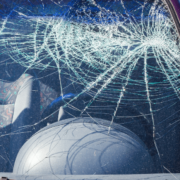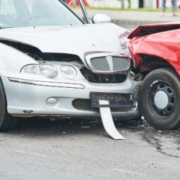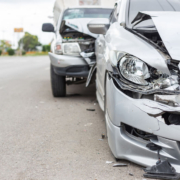How to Document Your Injuries Effectively After a Car Accident in Alabama
Properly documenting your injuries after an Alabama car accident can make a significant difference in the outcome of your personal injury case. However, if you don’t start documenting until days or weeks after your accident, you may lose valuable evidence that your attorney could use to help you.
That’s why it’s important to take action quickly and reach out to McPhillips Shinbaum after an Alabama car accident. With the help of attorney Aaron Luck, who handles our personal injury claims, you can fight for what you deserve. Call us at 334-262-1911 to set up a time to talk.
Initial Steps to Take at the Accident Scene
The moments immediately following a car accident are critical. Your first priority should be to call the police and seek medical attention, even if your injuries seem minor at first. The police report will serve as an official record of the incident, so you should get a copy as soon as it’s available to you. While waiting for help, gather essential information from other parties involved, such as their names, contact details, and insurance information. If there are witnesses, get their contact information as well. Take photos of the accident scene, including vehicle damage and road conditions. This documentation, along with proof of your injuries, may form the foundation of your personal injury claim.
Photographing Your Injuries
Photographing your injuries is an important part of documenting the impact of a car accident. As soon as possible, take clear and detailed photos of any visible injuries. Make sure to capture images from multiple angles to provide a complete view of each injury. Use good lighting to ensure that your injuries are clearly visible in the photos.
If possible, take pictures at different stages of your recovery to show how your injuries change over time. Take photos in the same place, with the same lighting, and at the same time of day to keep them as consistent as possible. This makes it very hard for the other party to question their reliability.
These images can serve as powerful evidence when dealing with insurance companies or in court. Remember to also photograph any medical equipment you need, like casts or crutches, as they demonstrate the severity of your injuries.
Keeping Medical Records
Maintaining detailed medical records is essential for tracking your injuries and recovery. After seeking medical attention, make sure to get copies of all documents from your healthcare providers, including medical reports, treatment plans, and prescriptions. Keep a folder or digital file to organize these records, as this makes it easier to access them when needed. Document any ongoing symptoms and note each follow-up visit to your doctor. Give your attorney access to these records so they can determine how best to use them in your case.
Keeping a log of your appointments, medications, and any recommended treatments will help create a clear timeline of your recovery. This organized record-keeping can be invaluable when dealing with insurance companies or in a legal case. Not only does it show how your injuries impact your life, it also shows your efforts to comply with treatment recommendations and do your part to recover.
Journaling Your Recovery Process
Keeping a personal injury journal can be incredibly helpful in tracking your recovery after a car accident. Each day, write down your pain levels and any injury-related challenges you’re facing. Note how your injuries affect your daily life, such as tasks that have become difficult or any activities you can no longer do. Be specific about the pain and discomfort. You may find it helpful to mention any medications you are taking and how they make you feel.
This daily record can be an essential piece of evidence if you need to show how the accident has impacted your life over time. Don’t forget to include small details that may fade with time. For example, if you have to hire someone to take your children to and from school or use adaptive equipment to get your work done, you should keep track of these changes to your daily life. If your injuries affect you ability to work, you can also document these challenges. You may want to write about days you have to take off for doctors’ appointments, days that your pain makes it impossible to work, and any duties you are unable to perform.
Choose McPhillips Shinbaum for Your Alabama Personal Injury Claim
Attorney Aaron Luck and his team are committed to helping victims like you demand fair compensation after an accident. Take the first step now—call us at 334-262-1911 or reach out online to get started.






 Driver Fatigue and Car Accidents
Driver Fatigue and Car Accidents









